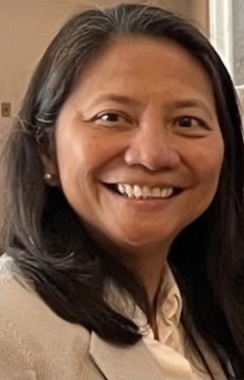LOS ANGELES – In an effort to establish a strong working relationship with the Filipino-American community, a nationwide nonprofit organization engaged in a roundtable dialogue with community leaders on Friday to find out more about the pressing issues being faced by Pinoy seniors in Los Angeles.
The AARP (formerly known as the American Association of Retired Persons), led by their multicultural markets & engagement vice president Daphne Kwok, California state director Katie Hirning, and state operations advisor Christina Clem, got right down to business and asked prominent community leaders if there were specific topics or issues faced by Pinoy seniors that intersect with the AARP’s work.
“AARP is committed to serving the Asian American Pacific Islander (AAPI) communities in California. And we’re committed to being part of the Filipino communities here in Los Angeles,” AARP multicultural outreach associate state director Ahnileen Martinez said.
According to Martinez, their organization’s wealth of information, resources, and services are available for the seniors to help them navigate the opportunities as well as the challenges we all face when we age.
Kwok said that AARP only started actively engaging with the AAPI communities within the last three years. The recent efforts in engagement resulted from the growing populations of the diverse ethnic communities, she said.
The effort was a “true commitment” by AARP to be in the community, Kwok said.
“I want to ensure that our community is able to engage fully in all that the AARP has to offer,” she added.
Kwok, whose relatives had lived in Cebu for over 60 years, said that the AARP being engaged with the Filipino community has a personal relevance to her.
Issues facing Pinoy seniors in LA
Art Garcia of the Filipino American Community in Los Angeles asked AARP to look into producing media outreach material that are published in-language. Garcia noted that Filipinos across America speak five major languages (Tagalog, Ilocano, Kapampangan, Cebuano, and Bicolano, among others) from out of the 150 languages spoken across the archipelago.
Garcia said that it is wrong to assume that all Filipinos can read English. He cited the findings of the 2010 census, saying that 52 percent of Filipinos in the US are still monolingual and still speak in their native languages.
“If we have to outreach, please be culturally sensitive,” Garcia said.
Errol Santos remarked that most of senior bankruptcy comes from medical care expenses and the costs of long term care. He proposed the implementation of financial education campaigns for seniors most affected by this.
Santos also emphasized the importance of the caregiving industry and how the Asian seniors should be educated on the importance of professional home care providers, especially during the latter stages of their adult lives.
Other issues brought up during the roundtable session included: a cultural divide between immigrant Filipinos and US-born Filipinos, chronic diseases that afflicts Filipino migrants due to radical lifestyle changes, health education availability, in-language access to information about new models of health care delivery, collaborative work between AARP and community organizations, and the portability of retirement and health care benefits, among others.
Restarting a partnership
Search to Involve Pilipino Americans (SIPA) executive director Joel Jacinto said that he’s thankful for AARP for “restarting” their efforts to engage the Filipino community. Jacinto cited some “mis-starts” to the partnership between the AARP and the community from some years back due to miscommunication.
Jacinto also remarked that a partnership between AARP and the Filipino community could also prove to be effective if a “board of partnership” that would monitor the progress on goals set by both sides would be established.
ABS-CBN Foundation’s Joannie Feliciano said that Friday’s roundtable discussion brought to light to the fact that there is “a lot of opportunities” between AARP and the Filipino community, especially “once the gap has been bridged.”
Feliciano noted that Filipino seniors tend to be reclusive in the “shell” of their comfort zones. But once they come out, Feliciano said, it will be easier for them to avail of what the senior-support organization has to offer.
Feliciano, being an active non-profit advocate herself, lauded AARP’s approach in doing a grassroots movement to reach out to the community.
“I really think that all we need is a bridge to AARP, because there’s too much that AARP has to offer,” Feliciano said.
The roundtable dialogue was co-hosted by the Philippine Consulate General in Los Angeles. However, Consul General Ma. Hellen Barber-De La Vega was unable to attend to the event due to heavy workload at the Consulate.
De La Vega,instead, sent a letter of warm regards to the AARP leadership and the community members present at the roundtable dialogue.
(www.asianjournal.com)
(LA Midweek September 11, 2013 Sec A pg.1)





